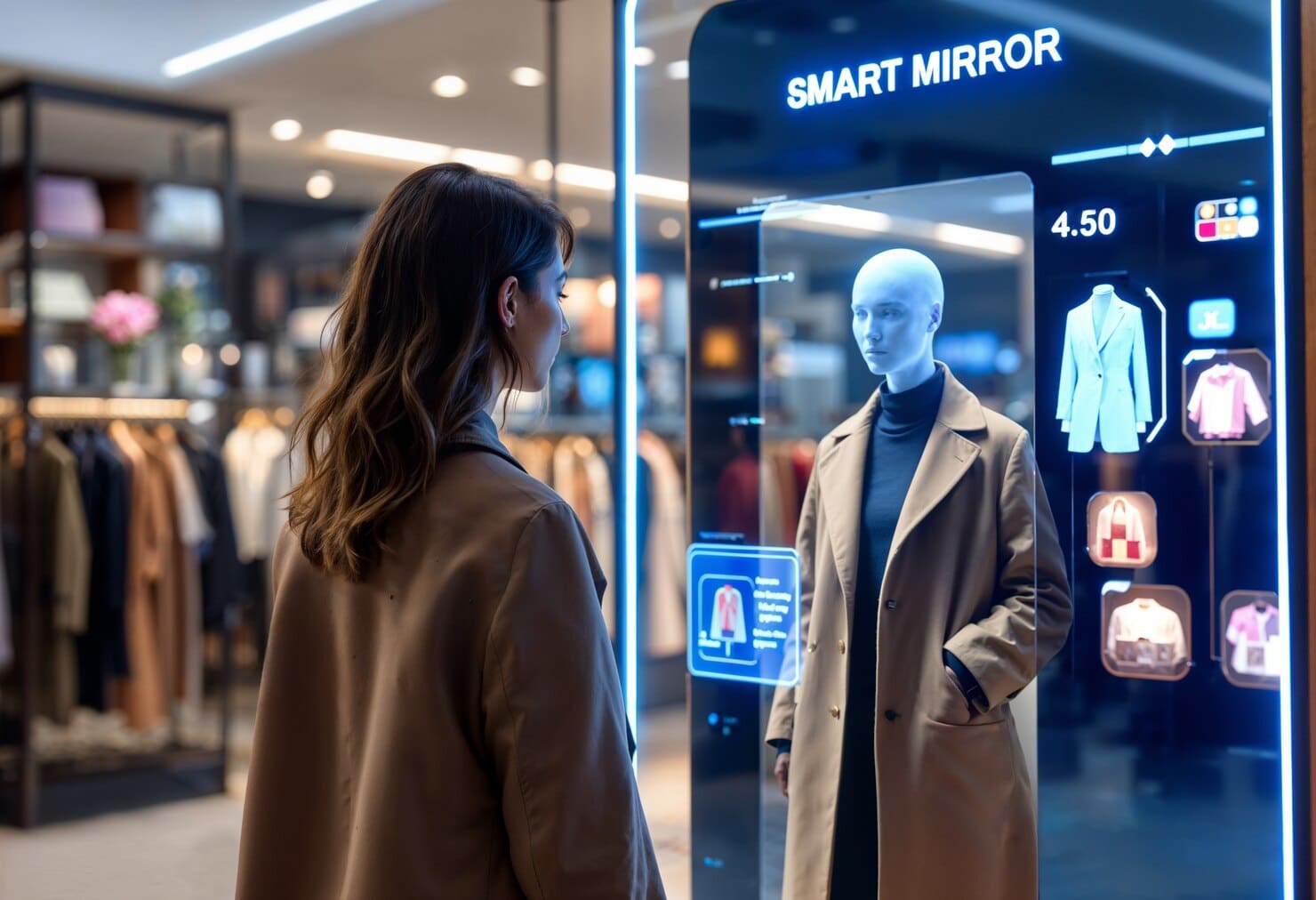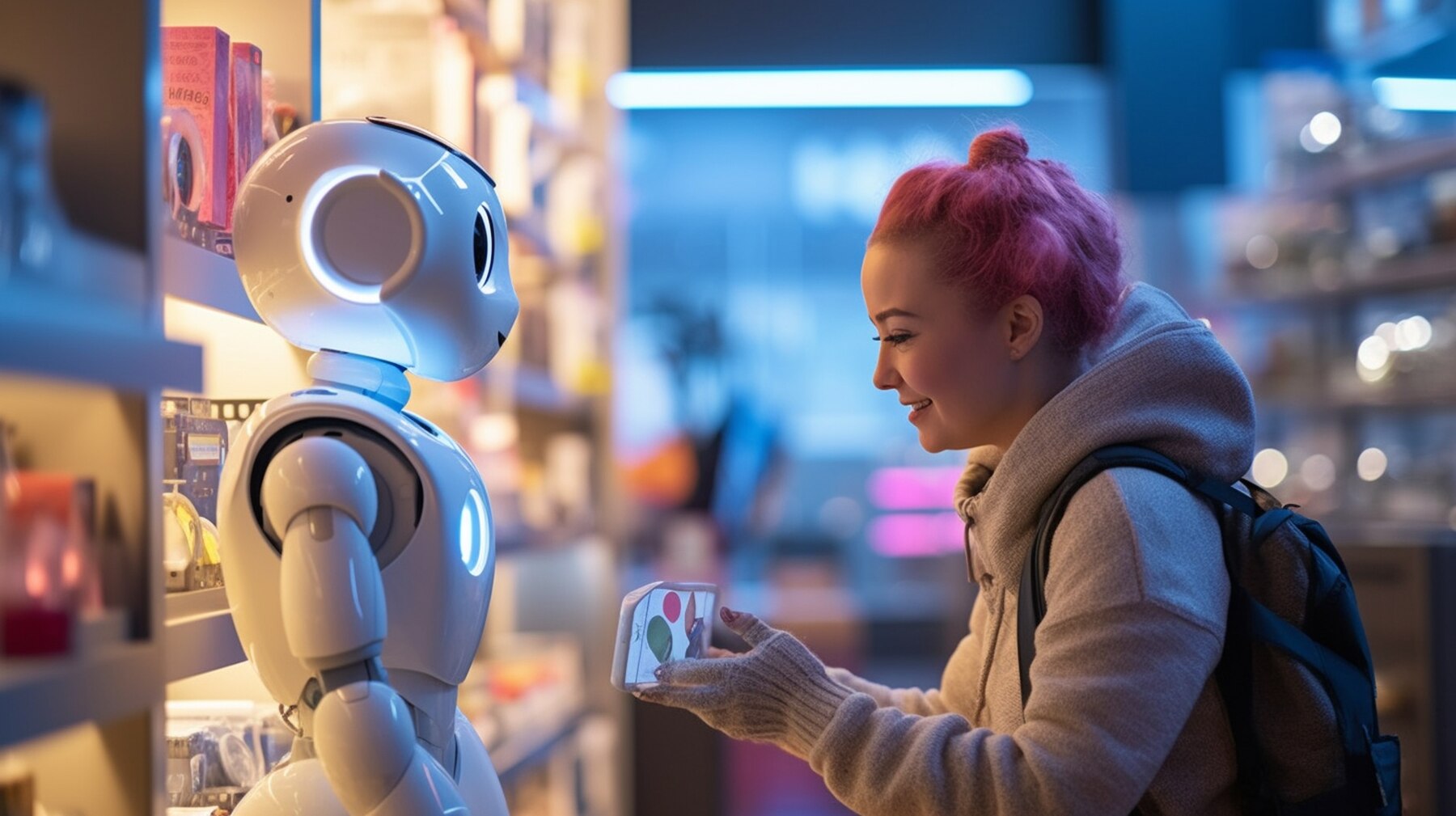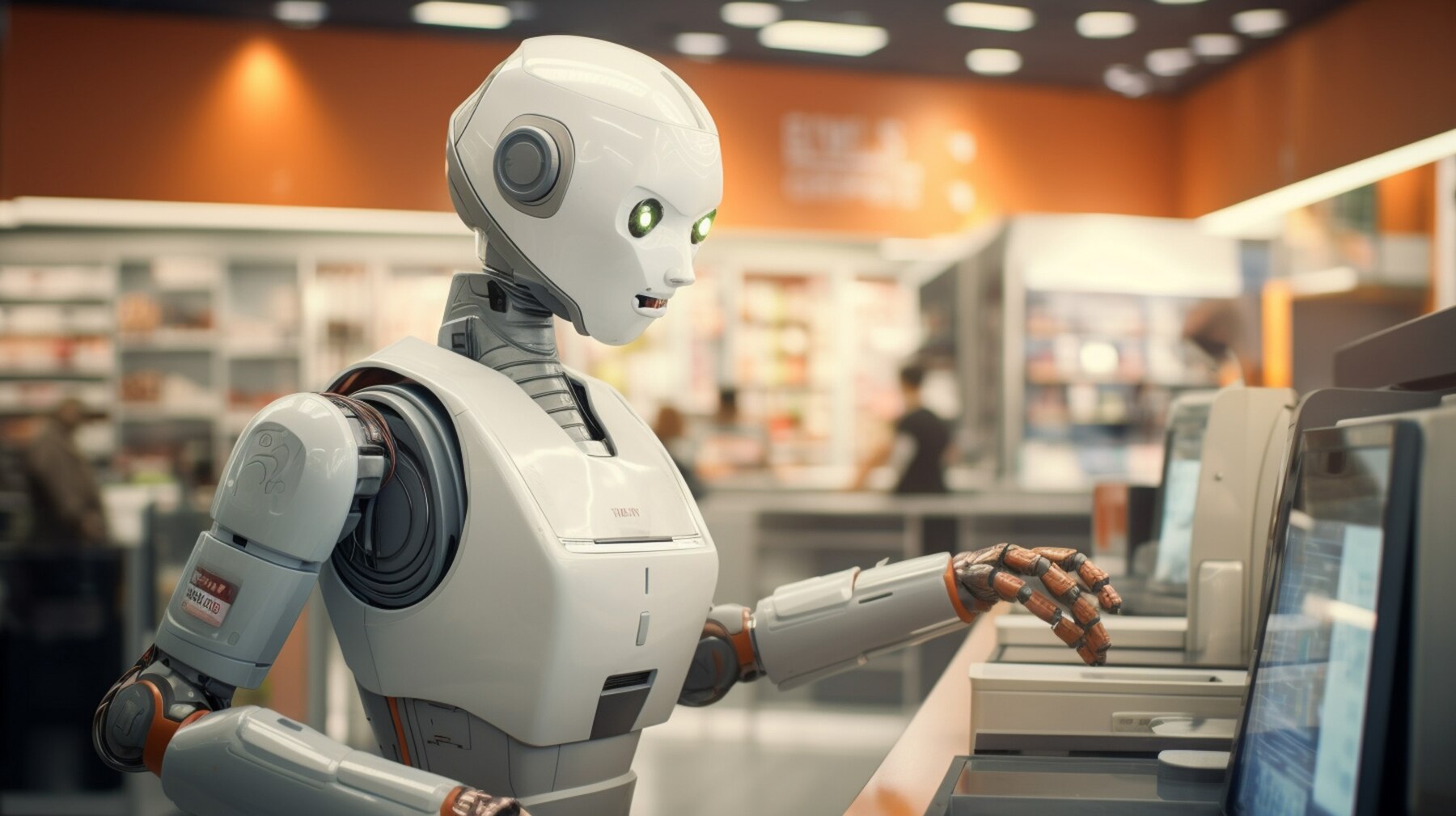
AI in Retail: How Businesses are Using Smart Automation
The retail industry is in the midst of a massive AI revolution. Businesses employ AI for a lot of purposes. It assists in tailoring sales techniques and automates inventory tracking. It streamlines operations and enhances customer satisfaction and profits. Automated intelligence empowers retailers to operate efficiently and provide personalised experiences to customers.
This guide explores how AI is changing retail. We’ll explore real-world applications, benefits and future trends. We’ll cover real-world applications, benefits, and future trends. Whether you own a business or are a curious shopper, understanding AI’s role in retail can provide insights into shopping’s future.
The Role of AI in the Retail Industry
AI is not just a distant idea; it’s now transforming supply chain management and customer service. Retailers are adopting AI solutions to improve efficiency and enhance the shopping experience.
Key Benefits of AI in Retail

- Enhanced Customer Experience – AI makes shopping personal with relevant product recommendations.
- Operational Efficiency – Smart automation streamlines inventory, reduces waste, and improves logistics.
- Fraud Detection & Security – AI helps spot fraud and prevent cyber threats.
- Data-Driven Decision Making – Retailers use AI insights to predict trends and make better decisions.
- Cost Reduction – Automation cuts manual labour costs and lowers human error.
AI-Powered Shopping Experience
Personalised Product Recommendations
AI enhances shopping with personalised recommendations. Amazon and ASOS use algorithms. These tools analyse customer behaviour and suggest products, helping boost sales and improve satisfaction.
Netflix-style recommendation engines check your viewing history and what you’ve liked before. They use this information to suggest items you’ll enjoy.
Virtual Assistants and Chatbots
Retailers are using AI chatbots to improve customer service. These virtual assistants answer queries instantly, cutting wait times and raising engagement.
Popular AI Chatbots in Retail:
- Sephora’s Virtual Artist – Helps customers virtually try on makeup.
- H&M’s Chatbot – Finds outfits based on style preferences.
- Zara’s AI Chatbot – Provides real-time inventory and order updates.
Voice and Visual Search
AI simplifies product searches using voice and image commands. Tools like Google Lens and Amazon Echo allow shoppers to find items hands-free.
Smart Automation for E-commerce
AI-Driven Inventory Management
Effective stock management is vital. AI inventory systems analyse sales data and predict demand to maintain optimal stock levels and cut waste.
Example: Walmart uses AI to monitor stock and reorder items when supplies run low, avoiding overstocking or stockouts.
Automated Checkout Systems
Self-checkout kiosks and cashier-less stores are changing in-store shopping. Amazon Go’s “Just Walk Out” tech lets customers pick items and leave without manual scanning.
Benefits of Automated Checkout:
- Reduces checkout time and improves satisfaction.
- Lowers need for staff intervention.
- Cuts theft with AI monitoring.
Fraud Detection and Cybersecurity
AI is crucial for securing e-commerce platforms. Fraud costs retailers billions. AI systems can quickly analyse patterns and flag suspicious activities.
Example: PayPal uses AI to find fraudulent transactions and protect customer accounts.
AI-Driven Marketing Strategies in Retail
Predictive Analytics for Customer Insights
Retailers use AI to analyse customer behaviour. This helps them predict trends and tailor marketing effectively.
Example: Starbucks uses AI to send targeted promotions based on purchase history.
Dynamic Pricing Strategies
AI allows retailers to adjust prices based on demand and competition.
Example: Airlines and hotels use AI for real-time fare adjustments.
AI-Generated Content and Advertising
Retailers use AI to create product descriptions and optimise ad campaigns.
Example: Shopify’s AI tools help merchants craft engaging product descriptions.
AI in Brick-and-Mortar Stores
Smart Shelves and RFID Technology
AI smart shelves use RFID sensors. They track stock and update prices automatically. This cuts down on manual inventory checks.
Example: Kroger’s smart shelves use digital price tags that update based on AI insights.
AI-Powered Customer Insights
Retailers use AI cameras and sensors to track how customers move. This helps them gain valuable insights into shopping habits.
Uniqlo uses AI cameras to study facial expressions. They suggest products based on how people react.
The Future of AI in Retail
AI-Powered Sustainability Initiatives
Retailers are using AI to help with sustainability. It reduces waste and optimises supply chains.
Example: H&M uses AI to make accurate demand predictions and minimise waste.
Expansion of Augmented Reality (AR) Shopping
Augmented reality is growing in retail, letting customers try products virtually.
Example: IKEA’s AR app allows users to place virtual furniture in their homes.
The Rise of AI-Driven Robotics
AI robots are used in warehouses and stores for restocking, cleaning, and assisting customers.
Example: Lowe’s employs AI robots to help customers navigate stores.
The Future of Retail: AI-Driven Smart Automation

AI is revolutionising the world of retail and shopping by enabling a more innovative and personalised experience. Companies that adopt AI will flourish. They can receive product recommendations and intelligent automation, which allows them to differentiate themselves in a crowded marketplace.
With the advancements and innovations in AI, the shopping experience will continue to improve. Retailers and shopper-facing brands must adapt to these evolutions to meet shopper expectations and scale their businesses.
So, finally, are you ready for AIRetail? Implement AI solutions today and keep your business ahead!


